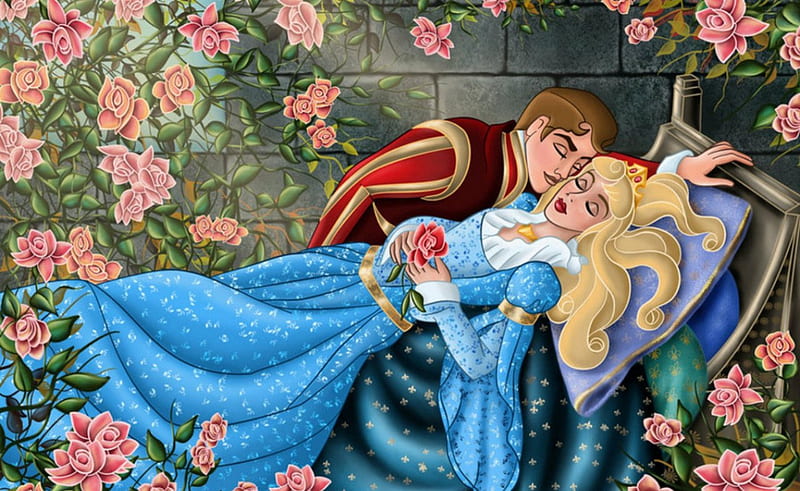If controlling is how we create the perception of the self (as it undoubtedly is) then we can go on from this to say that there are two complementary aspects or manifestations of this self. One aspect is ‘the self which believes that can control’ and the other is ‘the self which painfully doubts its ability to control.’
This is another way of saying that the experience of being the self is always suffused with either a pleasurable feeling of being a successful controller or the painful/humiliating feeling of being eminently unsuccessful in this regard. We can note, therefore, that the self always has to be ‘a controller’ of one sort or another.
The reason for this is – as we started out by saying – that without the controlling (either successful or unsuccessful) there can be no self. We need to control in order for there to be the perception of the self because the self is something that just won’t occur otherwise. This phenomenon that we call ‘the self’ is a contrived kind of thing, in other words – we just don’t like to see it as such. Obviously we don’t like to see the self as being a contrived sort of thing; that would be like putting on an act and at the same time telling everyone that we are doing so – it would defeat the object. Complete transparency about the act negates the act! Or we could say that it would be like telling a lie and yet at the same time making very sure that to inform everyone that this is what we are doing. What would be the point? Why not just not tell the lie in the first place?
The self represents a fundamental level of deception therefore – a level of deception that we are absolutely not allowed to know about. As Alan Watt says, the ultimate taboo is ‘the taboo against knowing who we really are’, or – to express this the other way around – the ultimate taboo is the taboo against knowing that who we think we are (or who we say we are) isn’t who we are. The one thing we are not supposed to do is look behind the opaque (or non-transparent) screen which is ‘the act’.
This is obviously the first thing we need to understand before we go ahead and try to understand anything else about this business of ‘being a human being’! It’s the first thing we need to understand if we are able to make sense of anything, and yet of course we don’t understand it, and that’s where all our problems begin. The reason we can say that ‘this is where all our problems begin’ is because – very clearly – when everything we do is predicated upon a false basis then we know we never going to get the sort of results that we wanted to get. The ‘results that we wanted to get’ will actually be tantalizing illusions!
We are actually jinxed right from the very onset because our fundamental way of understanding the world is wrong and if our fundamental way of understanding the world is ‘at variance with reality’ then everything that follows on from this is also going to be askew. When we start off on the basis of illusion then we are never going to depart from that illusion! We generally go around in life full of confidence all the same: this is evidently true – all we need to do is take a look around at people we see on the street – almost everyone we see has this sort of ‘confidence’ about them, the very basic sort of confidence of ‘being the person that we think we are in the world as we understand it to be’.
On one level this sort of confidence were looks works fine and we can’t really say anything against it. It works fine because the world that we’re interacting with is geared to that to the idea that we have about ‘who we are’, so we wouldn’t really expect any problems, obviously! We are adapted to this designed environment – all of our efforts are directed towards this end (towards the end of adaptation) – and so of course we can operate very competently within it. Our confidence – the confidence we can see on the face of the majority of people walking by on the street – would seem to be quite justified, therefore. It has a ‘solid basis’.
This level (the level of the ‘designed or thought-created world’) isn’t the only level, however, and that’s the bit that we’ve left out of our calculations. The level we’ve adapted to is ‘the level of things as we have contrived them to be’, which is something that in Buddhism is sometimes called ‘relative reality’. Relative reality is ‘the small picture’, the picture that corresponds to our conditioning – it is our conditioning projected outwards upon the world. Really, this is a tautological reality therefore – the world we see and relate to on a daily basis is essentially consistent with our expectations, but far from proving that we are ‘correct’ in our assumptions, this actually shows that the world we relate to on an ongoing basis has ‘zero information content’; it’s ‘a dream’ – in other words.
We’ve got it all back to front therefore. We think that when we see the world which we expect to see that this proves that our way of looking at things must be right. Our ‘model of reality’ (or ‘belief’) is confirmed, in other words. The fact that we are experiencing this ‘100% unchallenging’ (or 100% confirming) view of the world is actually ‘proof positive’ that has no actual content to it, ‘reality-wise’. No challenge means no reality, as always – when we set up a ‘reality’ for ourselves that doesn’t challenge our expectations or assumptions in any way then we’ve actually cheated ourselves out of any reality at all! We’re like the stereotypical company director who has unwisely surrounded himself with sycophantic ‘yes-men’ – it’s the very same trap that we have fallen into in our overwhelming desire not to be ‘existentially challenged’.
When we talk about being ‘successfully adapted to the world which is a faithful projection of our assumptions (or expectations’) then we’re not talking about anything very great therefore; the type of ‘confidence’ we’re looking at here isn’t actually worth anything in the real world. It’s ‘unreal confidence’, it’s ‘confidence for an unreal world, and so in this sense the type of basic confidence that we all have – which is the confidence of the mind-created self – isn’t genuine confidence at all. It’s actually ‘disguised insecurity’; it’s disguised insecurity because it’s based on the avoidance of reality.
Once we reflect on this it all becomes very obvious – what sort of confidence can we expect from ‘a contrived sense of self’? How could we imagine that real confidence could have come about as a result of ‘the act that we are putting on without knowing that we are’? This is the two-dimensional appearance of confidence that is going to let us down at the point at which actual contact with reality is made. So when we look around us at the people going by on the street (or when we take a look in the mirror for that matter) what we’re seeing is this absolutely false form of confidence, this ‘appearance of confidence’ that takes us in (along with everyone else) but which is going to let us down with a very big bump at some point in the future. The world around us is made up of this false form of confidence – we see it everywhere we look, and so we take it as the ‘gold standard’ regarding how we’re supposed to be…
If we were aware of this then this would put everything we ever did, or do, in a totally different light. How could it not? Everything we do – in the ordinary run of things – we do on the strength of this false form of confidence – it isn’t confidence that’s genuinely coming from us at all. It’s coming from ‘somewhere else’ – it’s coming from the basis of a ‘deception that we can’t seem to be a deception’, which isn’t really much of a pedigree! Our ‘purposeful output’ is arising out of our unconsciousness, which obviously isn’t a good foundation for anything.
There are consequences to our ‘unconscious output’, our ‘unconscious activity’, and these consequences are very clear and easy to explain. In a word, the ‘consequence’ of our unconsciousness is that we live the life of the nullity. Everything we do as ‘the adapted self’ makes perfect sense within the closed context of the world as we understand it as ‘achieving some end’, or ‘serving some purpose’ but because it happens on the basis of ‘a contrivance that we don’t know to be a contrivance’ (on the basis of ‘false confidence’ or ‘false awareness’) everything we purposefully do is always going to exist as ‘one half of a common of a pair of complementary opposites’. One opposite is a segment of ‘forwards movement of the wheel’ whilst the other is the corresponding segment of ‘backwards or reverse movement of that wheel’.
The complete movement of the wheel is of course always null, just as all procedures that are enacted within the tautological world (or ‘pseudo-world’) that is created when we treat our logical extensions (or ‘projections’) as being in some way different or separate to our starting-off point are ‘always null’. How could they not be – they start from nullity and so must end up there. What begins as a tautology is never going to depart from that tautology. All of the self’s acts are null. This is of course rather a dramatic assertion but when we actually look into it we can see that there could be no other way about it. We started off in this discussion by saying that if controlling is how we create the perception of there being ‘a self’, then there must be two complementary aspects (or manifestations) of that self. There is the self that seems (and everything is ‘theatrical’ here) to be successfully controlling what it ‘needs’ to be controlling, and there is a self which has the appearance of not being able to successfully control what it ‘needs’ to control.
On the one hand we have the euphoric (or ‘winner’) self and on the other we have the dysphoric (or ‘loser’) self. Even though the loser self is apparently not being successful in its ongoing attempts to control what it feels it has to control, it is still trying, it is still straining to do so. It’s not ‘successful controlling’ that creates a self (as we have said) but the attempt to control, the attempt to ‘obtain the designated goal’. If I were to totally and unreservedly cease to make any sort of serious (i.e. ‘self-orientated’!) effort to reach or obtain a designated goal (and have no preference either way, no feeling that it would somehow be better to obtain the said goal, or any other goal for that matter) then there would be no self. Consciousness with ‘no preference’ is however an extraordinary rare state of affairs – in Eastern terms it’s like the absence of ‘karma’, the absence of any wind pushing us helplessly this way or that.
Oddly enough therefore (to our normal way of seeing things), ‘controlling’ isn’t how we maintain or secure our autonomy, or ‘self-determination’; it’s how we maintain and secure the ‘self’ to be sure, but the self is nothing more than a blind ‘tendency to react’ – this ‘self’ is what keeps us from freedom or autonomy, in other words. We say that we are ‘free’ when we are able to do all the things that we want to do but what we really mean when we say this is that we are ‘temporary free from the painful pressure that our biases or compulsions are putting on us as a result of able to successfully obey them’, and we don’t need to be an existential philosopher to know that there is something not quite right about this definition of freedom!
Freedom means ‘freedom from the set of compulsions/biases/rules that constitute ‘who we usually think we are’. This is confusing because our biases (i.e. what we ‘definitely think’) is how we know ourselves, how we know ‘who or what we are’. This observation shows us something straightaway, therefore – it shows us that we only know who or what we are when we are told who or what we are! That’s why we (secretly) don’t want this thing called ‘freedom’ therefore; that’s why we want to be ‘told everything’, and not be free to see things for ourselves. The agency that ‘tells us who we are’ is of course thought – thought is a system of restrictions, a system of limitations, a system of possibly ‘non-negotiable prohibitions’ and it is this that creates the positive self.
Freedom can’t create a positive (or ‘defined’) self, obviously! What creates the positive self (which is the only type of self they could be) is ‘the subtraction of freedom’. This is of course true for any highlighted figure – when we draw out a figure of a little man on a page the line which bounds the figure is the cut-off point showing what the little man isn’t; the ‘exclusion of everything else’ is what creates the definition and the definition is what creates a little man that we have drawn. In the same way, a sculptor working with a block of rock chips away everything that isn’t the figure or form that he or she wants to end up with. It’s a ‘reducing of possibilities’ that’s taking place here – if we had too many possibilities then we don’t know where we were! Or – more to the point – we if we had too many possibilities then we wouldn’t know WHO we were. We wouldn’t know ‘who we are’ in the narrow-or-defined sense that we want to know it.
For us to have specific or concrete goals that absolutely DO matter to us we have to ‘narrow our perspective’, we have to look at the world in the narrow-or-constrained way which allows these goals to ‘stand out for us’ (or ‘appear meaningful to us’) and the very same act of ‘narrowing down our perspective’ that allows us to take the goals absolutely seriously allows us to create ‘the fixed sense of self’. It allows us to take that self (the self to which the goals matter so much) ‘absolutely seriously’. Then one of two things can happen: either we can have the perception that we getting closer to the goal that matters so much to us, or we have the complimentary perception that we are moving away from it. Thus we have the euphoric self and the dysphoric self. To be the euphoric self is great (as we know), whilst to be the dysphoric (or loser) self is terrible.
But all of this is trivial – either way, all I’m doing is ‘enacting the nullity’. If I like euphoria and dislike dysphoria and I am bound to enact the nullity, and that’s all there is to it…
Image: Montreal Street Art, from mywanderlust.pl






